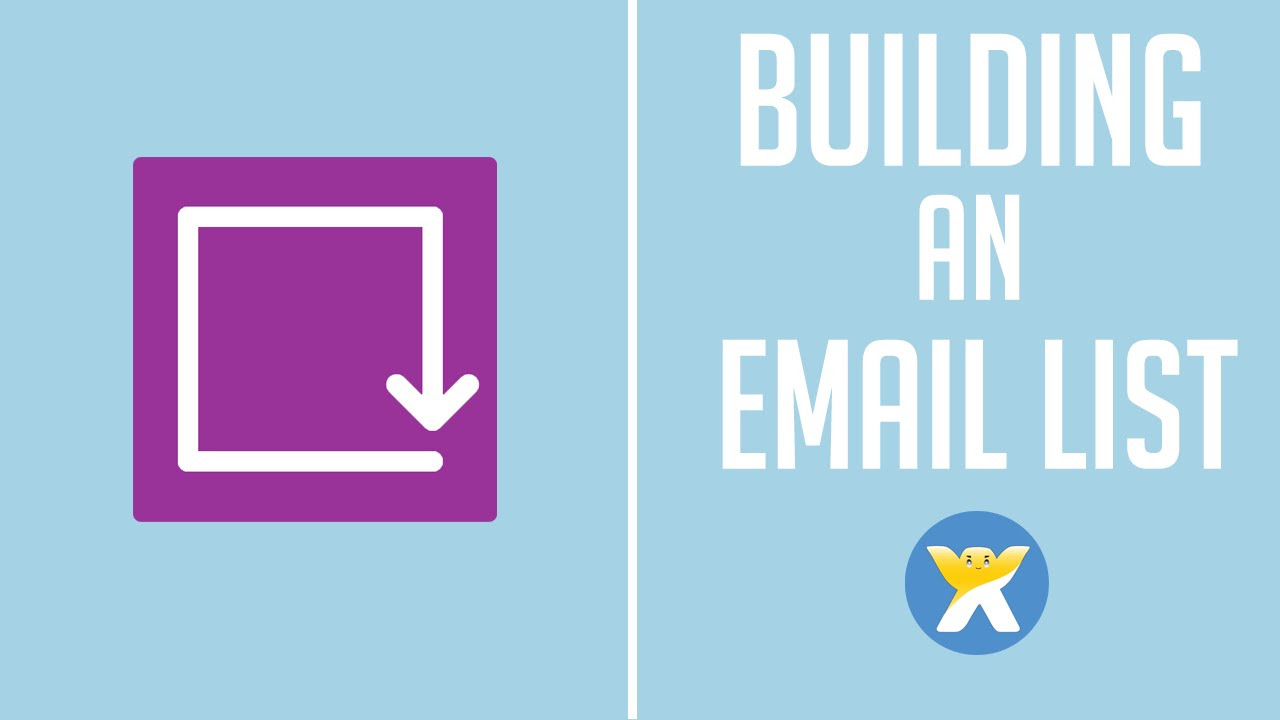Free Tips To Picking An Email List Site
Free Tips To Picking An Email List Site
Blog Article
What Should I Consider When Buying The Hematologist Email List?
When buying a hematologist's emails list, you must concentrate on a number of crucial aspects to ensure that the list is accurate, efficient, legally compliant, and appropriate to your business goals. Here are some important considerations. Quality of data and accuracy
Source of data: Confirm that the data provider is using reliable sources, such as professional directories, databases or verified opt-ins made by doctors of hematology. The quality of a list can be judged by how accurately the contacts were obtained.
Verification and updates: Contact the provider to inquire what the provider's data verification process. Validate emails to remove invalid or inactive addresses. Updates are required to keep the list up to date as healthcare professionals change jobs or institutions.
Specialization and Segmentation: Make sure that your list is specific to hematologists and can be further segmented by subspecialties, for instance (e.g. pediatric oncology, hematology) or the location, the years of experience, or even hospital affiliation. Well-segmented list helps you to focus your outreach more effectively.
2. Legal Regulations
Data Privacy Laws – Ensure the list complies with relevant laws and regulations, for example California Consumer Privacy Acts within the U.S.A. or General Data Protection Regulations in Europe. This means that emails should be gathered only by consent.
CANSPAM Act: If you reside in the U.S.A. Make sure the list is compliant to the CANSPAM Act that governs all commercial emails. Failure to comply could result in penalties and your emails may be flagged as spam.
Opt-in Consent : The list of email recipients should include hematologists that have explicitly agreed to receive emails from a third-party. Notifying patients who haven't signed consent may result in poor engagement aswell as legal issues.
3. Provider Reputation
Look for a reputable provider. Find reviews, testimonials as well as case studies to ensure the organization is trustworthy. A well-established provider with solid history will be more likely to offer accurate, high-quality information.
Transparency. Select a provider that's transparent about how and where data is collected. Avoid providers who aren't clear about methods used to collect data.
Customer Service: You should choose a service provider that provides excellent customer service. Support is crucial in case you have any questions or require assistance with technical issues, compliance issues or list customization.
4. Return on investment (ROI) and cost
Pricing Model: Think about the pricing structure offered, whether pay-per-contact, flat fee, or subscription-based. Make sure that the cost is in line with the expected return on investment, while balancing the quality of your list and quantity against your marketing budget.
Refund or Replace Policy: A reliable firm will provide the option of a refund or replacement in the event of an email address that is invalid. Be sure to read the entire conditions and terms of the policy prior to making any purchase.
Compare features of the list, like segmentation options, and guarantees on data accuracy from the company, as well as the price. If the data quality of the list is not good, the cheapest list might not be the best choice.
5. Data ownership and usage
The distinction between a single-use and a list of email lists with multiple uses. Multiple Use: Make sure to understand the conditions that apply to using the email list. Certain providers might only permit you to use the list only for only one campaign, while other providers might provide full ownership with unlimited rights to use.
Exclusive vs. Lists shared: Determine if the list belongs exclusively to your company or shared with other buyers. Exclusive lists typically lead to higher engagement because the list members are less likely to receive emails from other sources.
6. Data Integration and Format
Integration with CRM and Email Tools: Ensure that your email list is able to be integrated into CRM and email tools. For easy integration the list must be in a common format, such as CSV or Excel.
How do you filter the list and control it? Lists that are difficult to manage or segment can hinder the effectiveness of your campaign.
7. Ethical Questions
Relevance for Hematologists Be sure that the email you send out is appropriate for doctors. If you send them content that doesn't correspond to their expertise could result in poor engagement, and may negatively impact your image.
Beware of spamming methods: Avoid bombarding recipients with too many emails. Sending too many emails frequently could lead to spam complaints and damage to the reputation of the emailer.
We also have a conclusion.
The purchase of a hematologist's email list could be an effective tool for targeted marketing, but it requires careful evaluation. Focus on data quality, the compliance with privacy laws, and the credibility of the provider to ensure you get a valuable, accurate, and effective list. Making sure you are focusing on ethical marketing, and segmentation will enable you to maximize your ROI while maintaining your brand reputation. Check out the most popular hematologists email list for more tips.
The Top 10 Things You Should Consider When Purchasing An Oil And The Gas Industry's Email List
Consider these factors when buying an oil or gas list of email addresses to ensure that the list you purchase is of high quality, targeted and legally valid. Here are ten important factors to consider.
1. Relevance to the target audience
Be focused on the industries: Ensure the list of email addresses is targeted at the oil & gas sector. A well-organized email list must contain professionals, including engineers, geologists. Operations managers and decision-makers from upstream, downstream and midstream operations.
Roles and Job Titles - Check out a list of the most important individuals in your target company (executives/managers engineers, etc.). The companies you are targeting will include a list of most appropriate decision-makers (executives engineers, managers, executives, etc.).
2. List the source and vendor reputation
Reputable List Providers: Purchase only from email list suppliers who adhere to best practices. Avoid sources of doubtful origins since they could result in low-quality data, or even legal problems.
Data Quality: Conduct a thorough research or request testimonials in order to evaluate the data provider's quality.
3. Data Accuracy, Freshness and Quality
Data Age: This list should contain the most recent contact information. Companies in the oil and gas industry often undergo staff change. Contacts with a long-term history could result in a higher bounce rate.
Verification Process. Ensure that your vendors check regularly and make changes to their lists in order to eliminate incorrect or inactive contact details.
4. Conformity to Regulations
Legal Compliance. Check that your list is in compliance international and local rules, such as GDPR and CAN-SPAM. These regulations govern the use of personal information. Non-compliance might lead to criminal penalties and risk.
Opt-in Process: Determine whether the email address on the list was obtained with the consent of the recipients, i.e. they've chosen to receive messages.
5. Segmentation and Customization
Custom Segmentation: Quality list providers should provide the option of segmentation based on factors such as location, job title, company size or sub-sector in oil and gas.
Custom Filters: Based on the goals of your campaign, ensure the list is customizable based on the criteria of geographical location and size of business, or specific needs.
6. Deliverability Rate
High Deliverability Rates: A high-quality email list must have high deliverability rates, typically 95% or more. Bounce rates on poor quality email lists could be very high, which could harm your brand's reputation and impact marketing efforts.
Check the list and request the metrics.
7. Volume Vs.
Quality over Quantity - Make sure the list you create isn't just large, but highly accurate and specific. A smaller, but highly-quality mailing list could be more effective than one that is large and generic.
Engagement Metrics: Prioritize engagement rates over the number of contacts, as an engaged audience is more likely to respond to your campaigns.
8. Cost Structure and Pricing
Transparent Pricing - Understand the pricing structure, regardless of whether it is a one-time or regular subscription. Beware of low-cost, unusually priced lists. They might not provide any value or quality.
Return on Investment - Compare your list price to the conversion rates you anticipate. The cost of a premium to obtain an item that is specifically focused can result in a lower cost in the long run.
9. Privacy and Data Security
Data Security: Check the security policies of the vendor. List providers must ensure that personal data is secure against unauthorised access.
Confidentiality: Confirm that the service provider does not share or sell your information, particularly if your business requires privacy and discretion.
10. After-sales Customer Support
You are able to reach the vendor to receive ongoing support if you need help in completing your list, or if you have any problems.
List Replacement Guarantee in the event that there is a problem with the list (e.g. incorrect data or poor delivery), an excellent provider will offer refunds or replacements.
Consider these factors when purchasing an email database for your oil and gas-related business. This will guarantee that it is efficient, reliable, in line, and fulfills all of your expectations. Follow the pro oil and gas industry email list for blog tips.